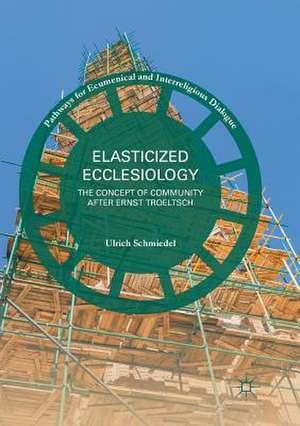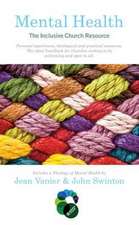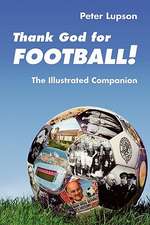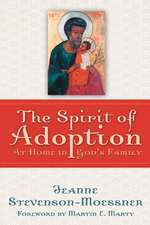Elasticized Ecclesiology: The Concept of Community after Ernst Troeltsch: Pathways for Ecumenical and Interreligious Dialogue
Autor Ulrich Schmiedelen Limba Engleză Paperback – 12 iul 2018
This study confronts the current crisis of churches. In critical and creative conversation with the German theologian Ernst Troeltsch (1865-1923), Ulrich Schmiedel argues that churches need to be “elasticized” in order to engage the “other.” Examining contested concepts of religiosity, community, and identity, Schmiedel explores how the closure of church against the sociological “other” corresponds to the closure of church against the theological “other.” Taking trust as a central category, he advocates for a turn in the interpretation of Christianity—from “propositional possession” to “performative project,” so that the identity of Christianity is “done” rather than “described.” Through explorations of classical and contemporary scholarship in philosophy, sociology, and theology, Schmiedel retrieves Troeltsch’s interdisciplinary thinking for use in relation to the controversies that encircle the construction of community today. The study opens up innovative and instructive approaches to the investigation of the practices of Christianity, past and present. Eventually, church emerges as a “work in movement,” continually constituted through encounters with the sociological and the theological “other.”
| Toate formatele și edițiile | Preț | Express |
|---|---|---|
| Paperback (1) | 725.75 lei 6-8 săpt. | |
| Springer International Publishing – 12 iul 2018 | 725.75 lei 6-8 săpt. | |
| Hardback (1) | 730.97 lei 6-8 săpt. | |
| Springer International Publishing – 26 ian 2017 | 730.97 lei 6-8 săpt. |
Din seria Pathways for Ecumenical and Interreligious Dialogue
- 20%
 Preț: 752.54 lei
Preț: 752.54 lei - 18%
 Preț: 781.31 lei
Preț: 781.31 lei -
 Preț: 384.09 lei
Preț: 384.09 lei - 15%
 Preț: 641.71 lei
Preț: 641.71 lei - 15%
 Preț: 643.34 lei
Preț: 643.34 lei - 15%
 Preț: 642.18 lei
Preț: 642.18 lei -
 Preț: 389.88 lei
Preț: 389.88 lei - 18%
 Preț: 730.97 lei
Preț: 730.97 lei - 15%
 Preț: 641.03 lei
Preț: 641.03 lei - 15%
 Preț: 640.37 lei
Preț: 640.37 lei - 18%
 Preț: 896.39 lei
Preț: 896.39 lei - 18%
 Preț: 788.22 lei
Preț: 788.22 lei - 18%
 Preț: 950.21 lei
Preț: 950.21 lei - 15%
 Preț: 528.95 lei
Preț: 528.95 lei - 15%
 Preț: 525.01 lei
Preț: 525.01 lei -
 Preț: 487.19 lei
Preț: 487.19 lei - 15%
 Preț: 644.30 lei
Preț: 644.30 lei - 18%
 Preț: 893.71 lei
Preț: 893.71 lei - 18%
 Preț: 943.43 lei
Preț: 943.43 lei - 18%
 Preț: 996.91 lei
Preț: 996.91 lei - 18%
 Preț: 940.25 lei
Preț: 940.25 lei - 15%
 Preț: 636.63 lei
Preț: 636.63 lei - 18%
 Preț: 722.26 lei
Preț: 722.26 lei - 18%
 Preț: 783.68 lei
Preț: 783.68 lei - 18%
 Preț: 731.73 lei
Preț: 731.73 lei -
 Preț: 423.08 lei
Preț: 423.08 lei - 15%
 Preț: 642.36 lei
Preț: 642.36 lei -
 Preț: 388.90 lei
Preț: 388.90 lei - 15%
 Preț: 642.36 lei
Preț: 642.36 lei - 15%
 Preț: 640.06 lei
Preț: 640.06 lei - 18%
 Preț: 732.52 lei
Preț: 732.52 lei
Preț: 725.75 lei
Preț vechi: 885.06 lei
-18% Nou
Puncte Express: 1089
Preț estimativ în valută:
138.90€ • 144.62$ • 117.38£
138.90€ • 144.62$ • 117.38£
Carte tipărită la comandă
Livrare economică 10-24 martie
Preluare comenzi: 021 569.72.76
Specificații
ISBN-13: 9783319821962
ISBN-10: 3319821962
Pagini: 312
Ilustrații: XIV, 312 p.
Dimensiuni: 148 x 210 mm
Greutate: 0.39 kg
Ediția:Softcover reprint of the original 1st ed. 2017
Editura: Springer International Publishing
Colecția Palgrave Macmillan
Seria Pathways for Ecumenical and Interreligious Dialogue
Locul publicării:Cham, Switzerland
ISBN-10: 3319821962
Pagini: 312
Ilustrații: XIV, 312 p.
Dimensiuni: 148 x 210 mm
Greutate: 0.39 kg
Ediția:Softcover reprint of the original 1st ed. 2017
Editura: Springer International Publishing
Colecția Palgrave Macmillan
Seria Pathways for Ecumenical and Interreligious Dialogue
Locul publicării:Cham, Switzerland
Cuprins
Introduction. Church(es) in Crisis.- Part I. Religiosity.- 1. The Traces of Trust.- 2. The Drive for Difference.- 3. The Togetherness of Trust.- Part II. Community.- 4. The Construction of Community.- 5. The Attack on Alterity.- 6. The Promise of Plurality.- Part III. Identity.- 7. The Trouble with Trust.- 8. The Power of Practice.- 9. The Elasticization of Ecclesiology.- Conclusion. Crisis in Church(es).
Recenzii
“This is a remarkable book. … The book is full with observations, interpretations, and suggestions that are worthwhile to consider. Schmiedel’s book is surely a corrective to marketeer views that the churches should foremost ‘sharpen’ their profile and compete better on the religious and spiritual market.” (Arie L. Molendijk, NTT Journal for Theology and the Study of Religion, Vol. 73 (1), 2019)
Notă biografică
Ulrich Schmiedel received his DPhil from the University of Oxford, UK. He is currently a postdoctoral researcher in systematic theology at Ludwig-Maximilians-Universität München, Germany. His research, located at the intersection of theology, sociology, and philosophy, concentrates on the critical purport and creative potential of contemporary Christianity. He has published in a number of international journals. Recently, he co-edited Dynamics of Difference: Christianity and Alterity.
Textul de pe ultima copertă
This study confronts the current crisis of churches. In critical and creative conversation with the German theologian Ernst Troeltsch (1865-1923), Ulrich Schmiedel argues that churches need to be “elasticized” in order to engage the “other.” Examining contested concepts of religiosity, community, and identity, Schmiedel explores how the closure of church against the sociological “other” corresponds to the closure of church against the theological “other.” Taking trust as a central category, he advocates for a turn in the interpretation of Christianity—from “propositional possession” to “performative project,” so that the identity of Christianity is “done” rather than “described.” Through explorations of classical and contemporary scholarship in philosophy, sociology, and theology, Schmiedel retrieves Troeltsch’s interdisciplinary thinking for use in relation to the controversies that encircle the construction of community today. The study opens up innovative and instructive approachesto the investigation of the practices of Christianity, past and present. Eventually, church emerges as a “work in movement,” continually constituted through encounters with the sociological and the theological “other.”
Caracteristici
Offers a creative conceptualization of church as open community for the current context of churches Presents a critical and constructive analysis of Ernst Troeltsch’s interdisciplinary thinking in connection to philosophy, sociology, and theology today Brings Ernst Troeltsch’s ecclesiology to bear on the controversies which revolve around the construction of community past and present










